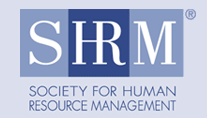The Next Pandemic: Loneliness and the Power of Casual Collisions
Prior to 2020, remote work was considered a job perk. The option to occasionally work from home was one way for employers to attract new talent and foster job satisfaction among existing employees. For those looking to work remotely, full-time options were typically limited to freelance or consultancy work. Since the COVID outbreak, many companies had no choice but to embrace remote work in order to survive. Data suggests that approximately 65% of the employed U.S. workforce would prefer to work remotely every day; but what would this mean for employee mental health and overall feelings of loneliness? And to what extent do unplanned, spontaneous interactions with co-workers play a part in employee engagement, satisfaction, and belonging, as well as career progression and work performance? Join SHRM Research as they share new data on some of the pros and cons of remote work and what your organization can do to prevent feelings of loneliness among your remote workforce.
Learning Objectives:
- Identify potential downfalls of full-time remote work as they relate to employee mental health, productivity, promotional considerations and other variables.
In-person session offerings are on a first-come, first-served basis.
To view all event accessibility & accommodations details visit here.
If a speaker has provided session materials, please visit https://presentations.shrm.org
Annemarie Schaefer

Find Sessions by Day
Find Sessions by Speaker
Find Sessions by Topic
- Select Track
- Compensation & Benefits
- Employment Law & Regulations
- Global HR
- HR Department of One
- HR Technology and Data Analytics
- Inclusion & Diversity
- Leadership & Personal Growth
- People & Talent Management
- Recruitment & Talent Acquisition
- Strategic HR & Organizational Design
- Student Track
- Workplace Culture, Empathy & Work Life Integration
Find Sessions by Credit Type
- Select Credit Type
Find Sessions by Competency
- Select Competency
- Business (Behavioral)
- Business Acumen
- Communication
- Consultation
- Global & Cultural Effectiveness
- HR Expertise
- Interpersonal (Behavioral)
- Leadership & Navigation
- Leadership (Behavioral)
- Organization (Technical)
- People (Technical)
- Relationship Management
- Workplace (Technical)
Find Sessions by Intended Audience
- Select Intended Audience
- Advanced (Elevating I&D)
- Early Career
- Executive-level
- Mid-Level
- Senior-Level

